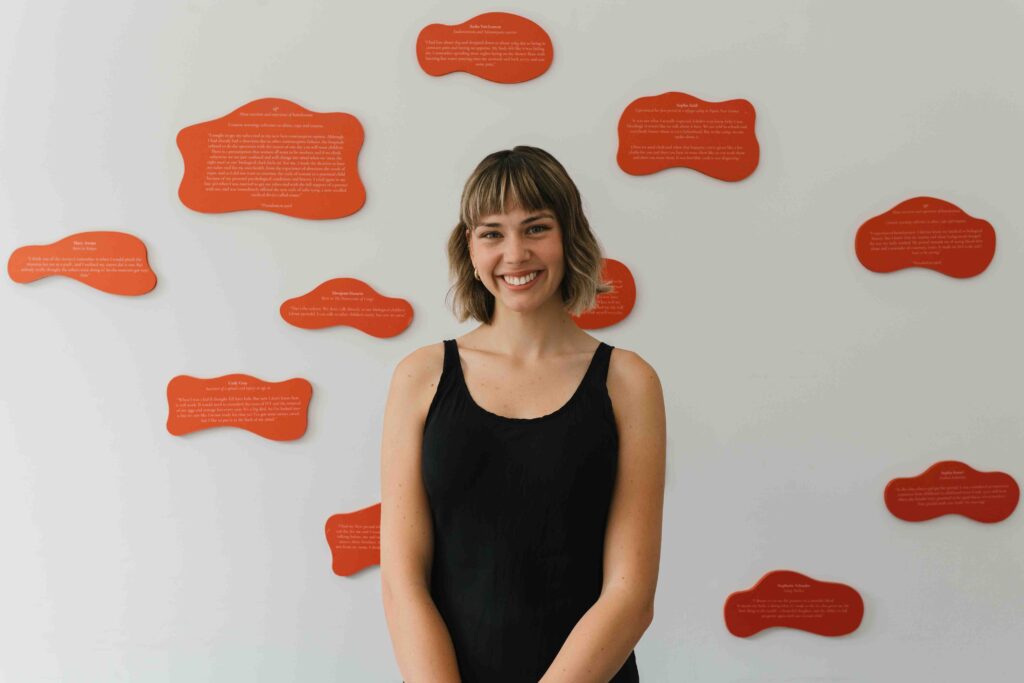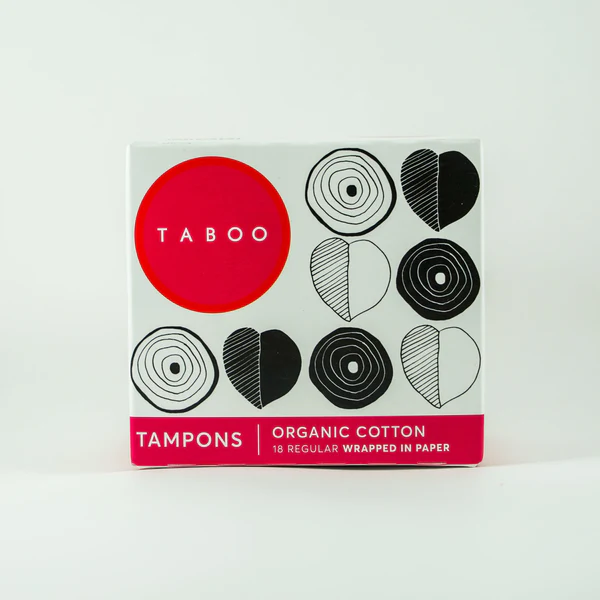Seventy-eight per cent of Australian girls say they avoid sport when they have their period, mostly due to shame about menstruating. We look inside the new game-changing South Australian campaign aiming to quash the stigma – and kick period poverty to the curb.
Traditionally, discussing periods has been a source of embarrassment, shame, judgement and discomfort. Game changing. Period. is a community-driven campaign to stop this outdated narrative and normalise everything to do with periods at all levels of sport. Its goal is to create a period-positive sporting community that’s supportive and inclusive of everyone who menstruates.
To do this, it’s offering free period education sessions to any sports club that wants one – aiming to reach at least 3000 sports participants. The initiative also involves a social media campaign to change attitudes about menstruation, which all athletes can get involved in.
Game Changing. Period. is being run by Active Inclusion with support from Volleyball SA, Netball SA, Football SA and the Pelvic Pain Foundation Australia. TABOO, Modibodi and hello. are also project partners. The whole thing’s being made possible by $450,000 in state government funding over two years.
Why do we need Game Changing. Period.?
- 50 per cent of Australian girls drop out of sport by the age of 17, though two thirds reported that sport gave them confidence.
- 78 per cent of teenagers who menstruate said they avoid sport when they have their period.
- Three in five people report feelings of shame and stigma about periods and how they affect participation in sport.
- 75 per cent of Australian athletes wouldn’t speak to a coach, trainer or senior team personnel about their period.
- More than 58 per cent of Australian sports people say their training or competition is affected by their periods.
Another reason: Period poverty
Game Changing. Period. partner TABOO is an SA-based social enterprise established to sell period products to the Australian market and use profits, advocacy efforts and projects to eradicate period poverty locally and overseas.
TABOO Managing Director Eloise Hall says period poverty is the experience where someone’s not able to access dignified or affordable period care – and it often starts with menstruation being stigmatised and a lack of menstrual education.

Period poverty in SA
While many of us associate period poverty with third-world countries, it’s actually a very real problem for many low-income South Australian households right now, says Eloise. Period poverty means one in five girls in South Australia are missing out on school, and around 65 per cent of Australian women are missing out on sports. Eloise says a lot of period poverty starts with stigma, which means girls and women are too ashamed to ask for menstrual products, or don’t know where to go to get them free.
In South Australia, the state government now provides funding to all schools with students in Years 5 and above to provide period products to help reduce period poverty. While this is good news for education and school-based sport, it doesn’t solve the problem for athletes at all levels experiencing period poverty in many sports clubs across the state.
Get educated (it’s free!)
Game changing. Period. is providing period education sessions delivered by the Pelvic Pain Foundation of Australia’s PEPP Talk Sports educators. These sessions are free for SA sporting clubs, players and personnel. The Periods, Pain and Endometriosis Program (PPEP Talk) has been running in Australian schools since 2019, and has now been tailored to sporting groups.
Eloise says reducing the stigma around menstruation and normalising its discussion through campaigns like Game Changing. Period. and programs like PPEP Talk can help reduce period poverty. That’s because period education empowers people with the knowledge that they have every right to seek out menstrual health care products – and they know where to get them.
Periods especially affect athletes
Eloise says she’s also excited by the campaign’s conversation about how periods affect athletes. “When you’re using your body in such an extensive way through exercise, you should be considering your menstrual cycle,” she says. “The fluctuating hormones of the menstrual cycle mean different training is appropriate at different times of the month. It’s important to design training schedules around those phases to enable athletes to perform at the best of their ability and avoid injury.”
According to PPEP Talk Clinical Educator Sarah Cossar, “many young athletes are sidelined by periods, pelvic pain, and endometriosis, hindering equal opportunity in sports”. The Pelvic Pain Foundation aims to change this by providing education and support through its PPEP Talk program.
“For coaches and support figures (parents, team managers, board members, etc.), we provide a session loaded with practical tools to keep young athletes in the game and guidelines for fostering period-positive sports environments,” says Sarah. “For players, we’ve designed a presentation packed with crucial insights into period pain, pelvic pain, endometriosis, and the interplay between menstrual cycles and training.”
Period talk is for everyone
Eloise says the education sessions are an important way for everyone – not just people who menstruate – to learn about periods. In a 2021 survey of Australian men aged 16-21, 49 per cent said their knowledge of periods was poor or non-existent, and 32 per cent said that talking about periods made them feel uncomfortable.
Eloise says research shows that in communities where men and boys are educated, the stigma of menstruation is significantly reduced. “That’s because when men and boys specifically understand the role of menstruation, they have a renewed sense of gratitude, reminding themselves that they wouldn’t exist without periods,” she says. “Menstruation is actually a process of life, regardless of your gender. That should be respected and considered in all infrastructure, including sport clubs.”
Info about providing period products
As part of Game Changing. Period., TABOO can help clubs provide period products for their facilities. Yes, it costs some money, but it’s an essential part of making clubs accessible to everyone. For some people, period products are as necessary as a ball or bat to allow them to participate in sports.
“Period products aren’t optional for people who menstruate. Sadly, some clubs have had the freedom to forget about that until now,” Eloise says. “But once the conversation starts, it becomes so obvious and so sensible to have period products available at clubs.”
“I often come across leaders or coaches who have never had a period themselves who just don’t know where to start, and we can guide them through the products they need to provide and what quantities they need to provide them in. We want to make people feel like they can have that conversation and be safely ignorant with us without any judgement or shame, and we can help them find the right solution.”



Be inspired by the pros
You’ll also be able to see what others are saying, read what pro athletes who menstruate have to say, and add to the dialogue. Eloise says she’s excited to see how many elite athletes, Olympians and Paralympians are breaking the ice and changing conversations through telling their stories about menstruation in sport on the Game Changing. Period. website.
“We definitely need champions to change culture. Most of the stigma around periods is a social, cultural kind of understanding we learn from one another. To have sporting leaders has been really great to watch. And I’m very excited to see more athletes – of all levels – come on board.”
For more information and to get involved visit gamechangingperiod.com.au.
Eloise Hall was honoured as one of South Australia’s 40 Under 40 in 2020. Find out more.

















